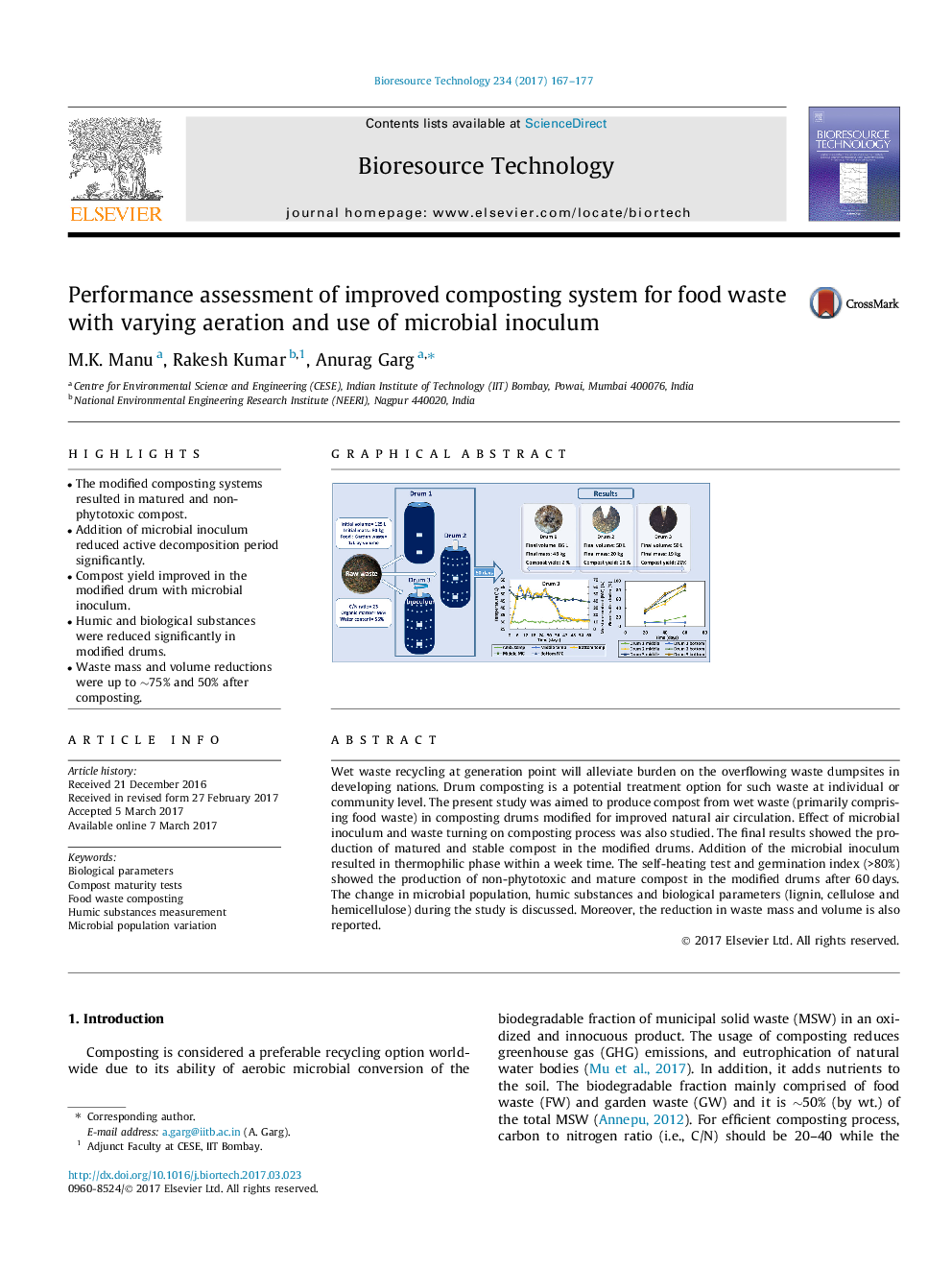| Article ID | Journal | Published Year | Pages | File Type |
|---|---|---|---|---|
| 4997324 | Bioresource Technology | 2017 | 11 Pages |
â¢The modified composting systems resulted in matured and non-phytotoxic compost.â¢Addition of microbial inoculum reduced active decomposition period significantly.â¢Compost yield improved in the modified drum with microbial inoculum.â¢Humic and biological substances were reduced significantly in modified drums.â¢Waste mass and volume reductions were up to â¼75% and 50% after composting.
Wet waste recycling at generation point will alleviate burden on the overflowing waste dumpsites in developing nations. Drum composting is a potential treatment option for such waste at individual or community level. The present study was aimed to produce compost from wet waste (primarily comprising food waste) in composting drums modified for improved natural air circulation. Effect of microbial inoculum and waste turning on composting process was also studied. The final results showed the production of matured and stable compost in the modified drums. Addition of the microbial inoculum resulted in thermophilic phase within a week time. The self-heating test and germination index (>80%) showed the production of non-phytotoxic and mature compost in the modified drums after 60Â days. The change in microbial population, humic substances and biological parameters (lignin, cellulose and hemicellulose) during the study is discussed. Moreover, the reduction in waste mass and volume is also reported.
Graphical abstractDownload high-res image (263KB)Download full-size image
